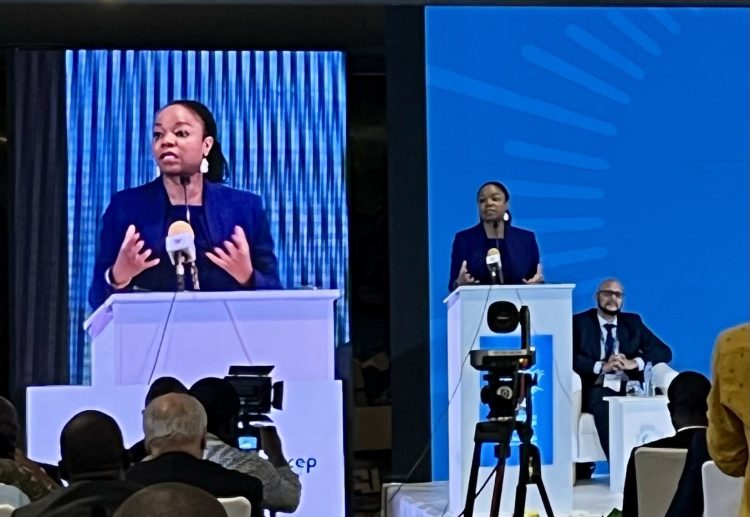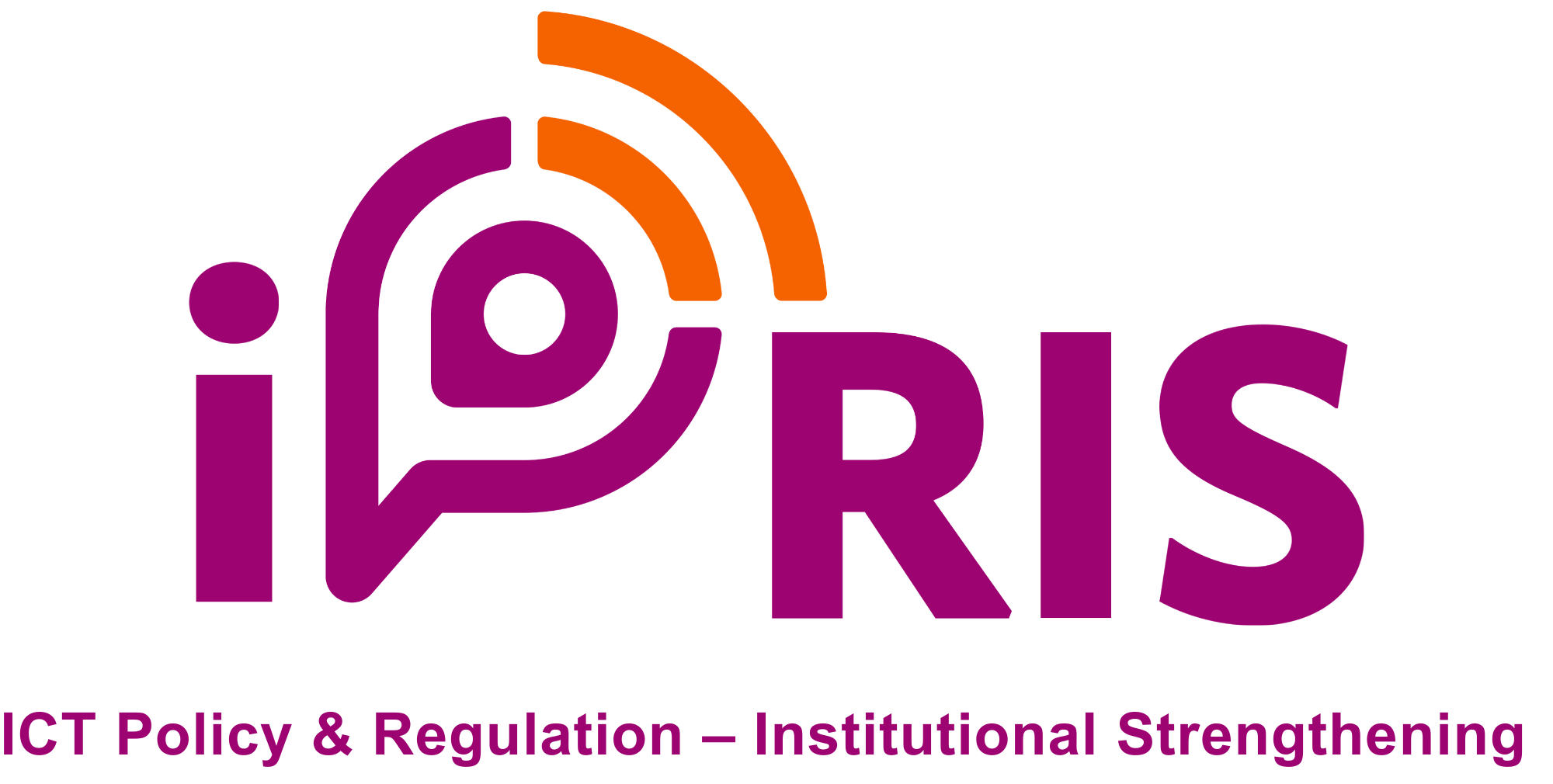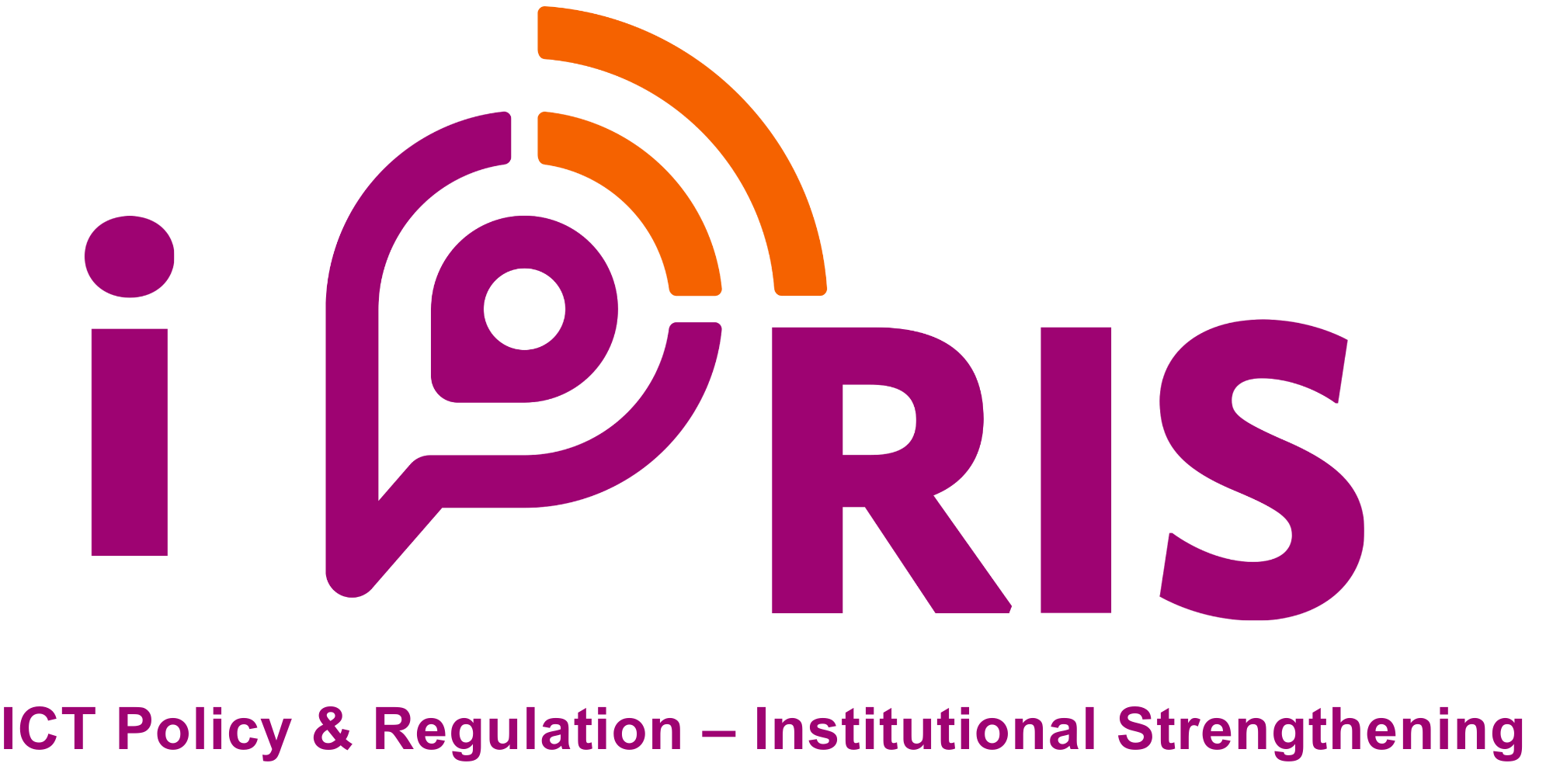Lomé, Togo, played host to the 21st seminar of Fratel, the network of French-speaking telecom regulators, on May 21-22, 2024. The event was organized by the Togolese national regulator ARCEP TOGO and the Congolese national regulator ARPCE, the current president of Fratel. The seminar welcomed 18 Fratel members including ILR, the technical partner for the French-speaking rounds of iPRIS, SPIDER, and various industry players. The theme of the seminar was "The data economy and mobile payment: what are the technical and economic regulatory challenges?"
With the acceleration of digitization, data access and exchange have become crucial to economic and social development. It is essential to create a secure environment to encourage the sharing and effective use of data, notably through open access. At the same time, the dramatic increase in data production has stimulated the development of data storage and processing infrastructures, particularly via the cloud, on a global scale.
In a world where every click, every transaction generates an avalanche of data, understanding and regulating this flow is becoming essential. The seminar kicked off with an inspiring presentation by Cina Lawson, Togo's dynamic Minister for the Digital Economy. She captivated the audience with a compelling vision of Togo's digital transformation, highlighting groundbreaking initiatives that are setting new standards in the region.
 Cina Lawson, Minister of Digital Economy, Togo. ©
Cina Lawson, Minister of Digital Economy, Togo. ©
The seminar was structured around three main panels, each addressing crucial aspects of regulation in the digital economy.
Data economy development
The first panel focused on the development of the data economy, a key issue in the digital age. The data economy refers to all economic activities and processes based on the use of data. It encompasses various practices, technologies and business models centered on the collection, analysis, sharing and use of data to create value.
This first panel, chaired by Marc SAKALA, Managing Director of ARPCE in the Republic of Congo, was introduced by David Guitton, Attorney at Jones Day.
As David Guitton astutely noted, "The data economy implies valuing data. It is the use of data that determines its value".
He stressed the importance for the State to provide a technical and legal framework governing access to data, and a regulatory framework enabling access to data between players (associations, labels, groupings...).
Ms. Laure de la Raudiere, President of ARCEP France, emphasised the importance for Europe of ensuring that digital transformation benefits European citizens and businesses. The seminar was structured around three main panels, each addressing crucial aspects of regulation in the digital economy.

Having explored the fundamental aspects of the data economy, the seminar progressed to the second panel, which looked at an equally crucial theme: "What public interventions to remedy potential market failures in data storage and processing. "
Public intervention in Data storage and processing
The data storage and processing market refers to all the services, technologies and solutions that enable companies and organisations to store, manage and process their data efficiently and securely. It was chaired by Luc TAPELLA, President of ILR (Luxembourg). In her introduction to the session, Ms Rihab RABBAJ, Analyst at Cullen International, highlighted the fundamental aspects and challenges of cloud computing services.
Among the speakers, Daniel ANOUGBA, Head of "Infrastructure Sharing and Access" at RTCI Côte d'Ivoire, focused on data processing market failures, initiatives taken and future prospects in his presentation.
Achille HUNYO, Service and Productivity Supervising Engineer at Ecobank, gave a presentation on public interventions to remedy potential failures in the data storage and processing market.
Jean Francis AHANDA, General Manager DATA CENTER services at ST digital, emphasized: "It is now accepted that the massification of data produced and its circulation are revolutionizing the economy. At once a strategic asset and a decision-making, action and production tool for companies, data is at the root of new decision-making processes and unprecedented alliance strategies between companies in different sectors, just as much as it is provoking new confrontations between economic players." Read more

After gaining a clear understanding of the challenges and interventions required in the data storage and processing market, the seminar then turned its attention to a hot topic: mobile payments.
Sharing experiences on mobile paymentsc
This third panel provided an opportunity to exchange experiences and perspectives, highlighting how this technology is revolutionising financial transactions and promoting economic inclusion. Mobile payments refer to financial transactions carried out using mobile devices such as smartphones and tablets. They enable users to purchase goods and services, transfer money and manage their finances via mobile applications or services.
With insightful keynote speaker Vinyo CAPO, Director of Markets and Data Regulation at ARCEP TOGO, the third panel plunged into the fast-changing world of mobile payments. Mawuli COUCHORO set the scene with a powerful introduction highlighting both the immense opportunities and formidable challenges presented by this technology.
This was followed by contributions from :
Régis ONDO MORO, Director of Markets at ARCEP GABON, who emphasised:
"It should be noted that Mobile Money enables greater financial inclusion of populations through its ability to offer financial services, particularly in rural areas, enabling inequalities to be reduced."
Mrs. Fatou Gueye, Deputy Director of Means and Payment Systems at BCEAO, cited examples of initiatives in certain countries, such as offering free access to certain essential services (the case in South Africa), promoting low-cost data offers for low-income users (the case in India), and deploying free wifi access points (the case in Kenya).
Mr. Sefa HUSUNUKPE, Mobile Money Director at Togocom, gave a brief overview of the mobile payment ecosystem in Togo. According to him, the available offers are still insufficient due to a number of challenges, namely: users' preference for liquidity, limited literacy and low levels of financial education, user identification, user security, and the compartmentalization of the ecosystem.
Achille Tefong VAUMI, Market Engagement Manager for the Mobile Money Program in Francophone Africa at the GSMA, presented an overview of mobile money, with figures supporting its overall growth in Africa, and the GSMA's position on interoperability in mobile money. Interoperability in mobile money refers to the ability of different mobile payment systems and financial networks to work together seamlessly. This enables users to transfer funds, make payments and receive money between different mobile money platforms, banks and other financial services.

In closing, Fratel's seminar in Lomé was not only a platform for intellectual exchange, but also an opportunity for SPIDER and ILR to exchange views with the regulators who will be taking part in the first French-speaking iPRIS cycle, which will begin with training in Luxembourg next September.
In addition to the high-level panels, participants visited ARCEP Togo's headquarters and were impressed by their data collection and analysis capabilities, as well as the availability of data for the general public. Togolese culture was also on show.
Fratel, the French-speaking telecommunications regulation network created in 2003, aims to contribute to training and collaboration between its members. In 2024, Fratel will be chaired by ARPCE Congo, and in 2025 by ARCEP Gabon.






